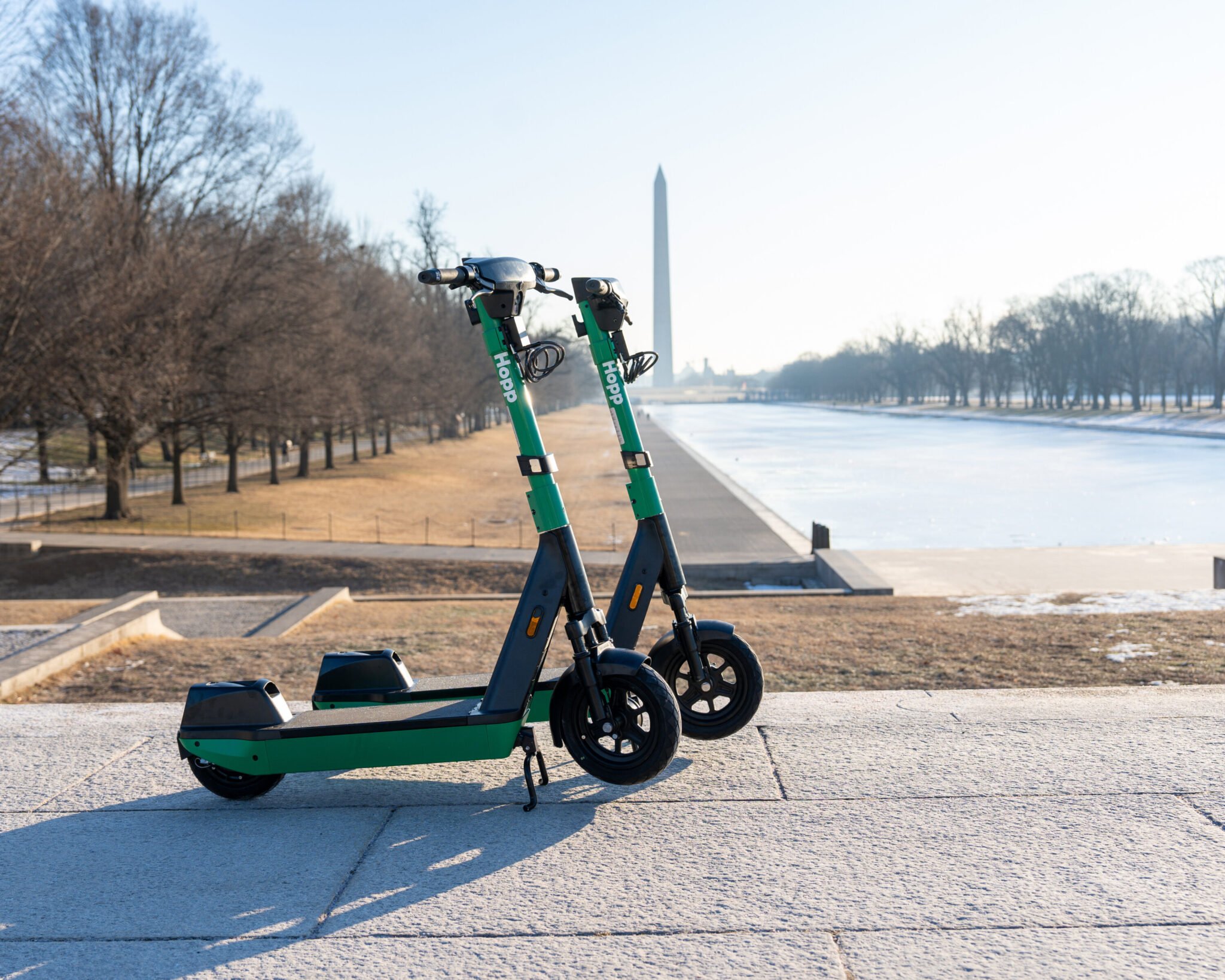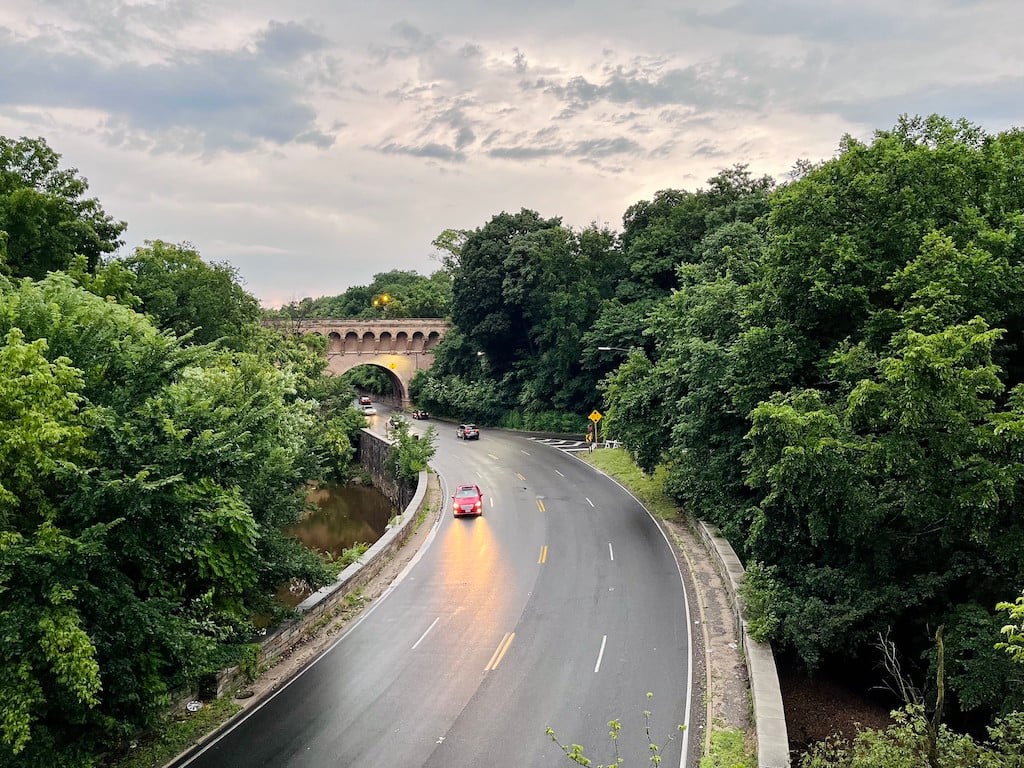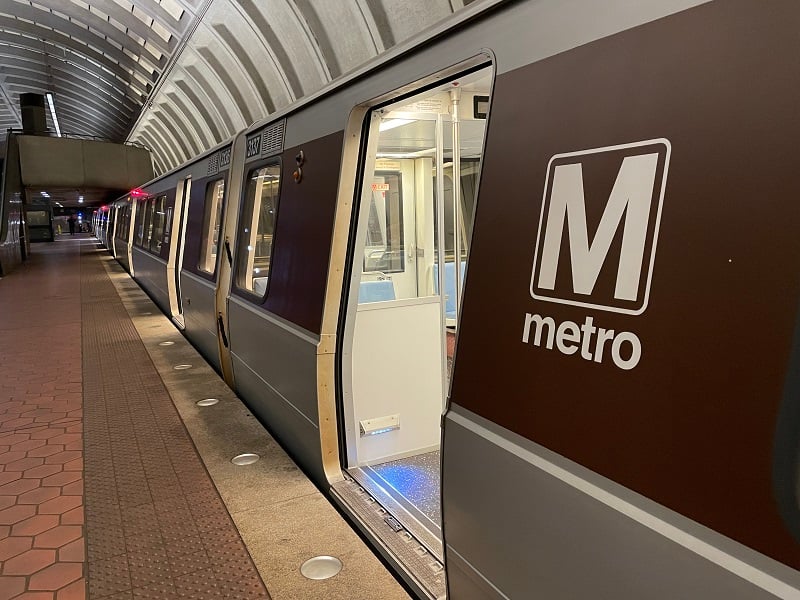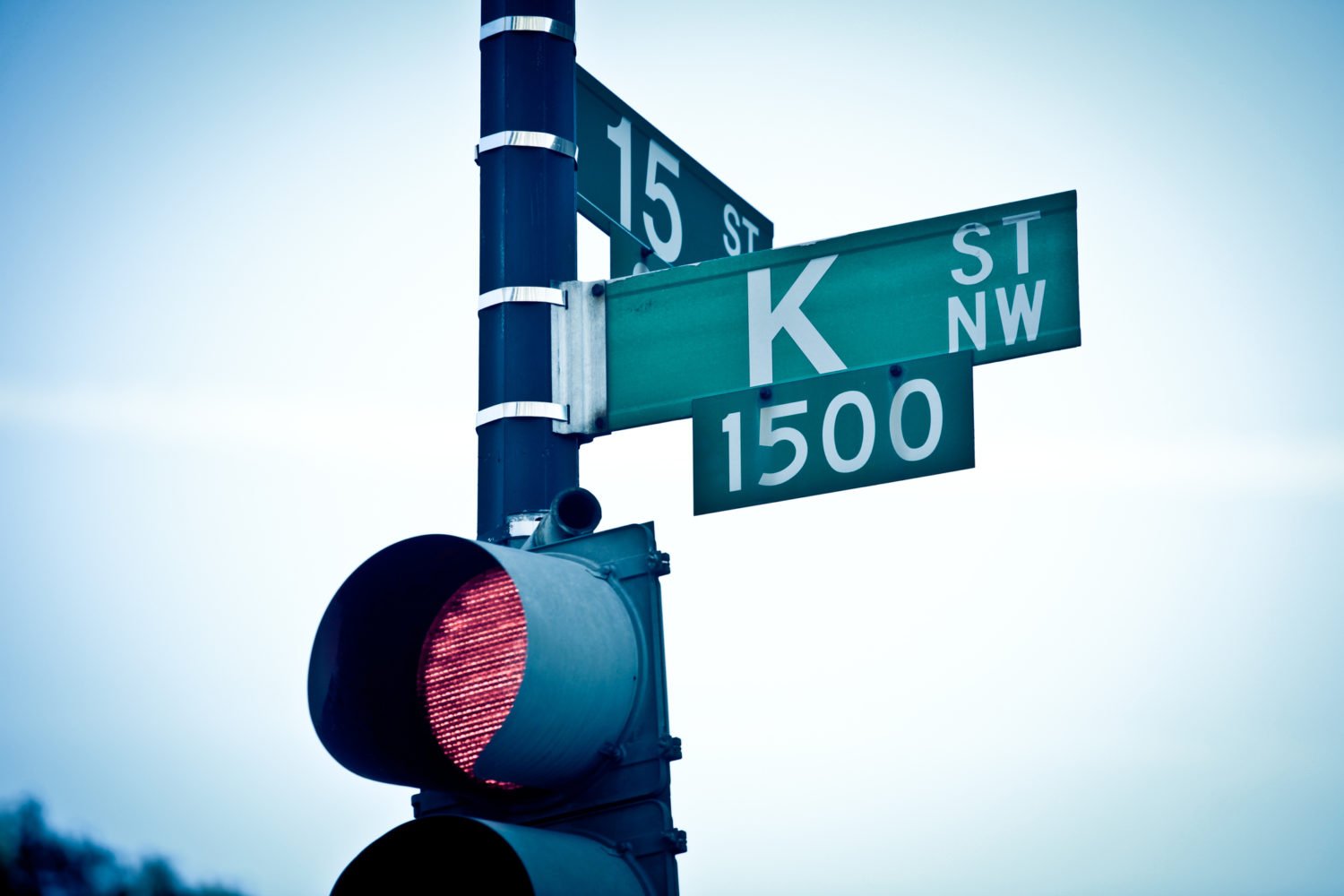Between Lime, Spin, and Veo, DC’s micromobility scene is packed with options. The District’s latest scooter provider hopes to stand out from the rest of the fleet: More than 700 Hopp scooters have touched down on our streets in the past few weeks, and they’re on track to inject a bit of a European sensibility into the nation’s capital.
The Estonia-based company behind Hopp is officially called Bolt, but changed its name for the American market to avoid confusion with Usain Bolt’s now-defunct scooter service. (There is another European Hopp mobility brand, but it has no US presence at this time.) Bolt launched its first e-scooters in 2018; today, its green-and-black rides are equipped with extra-large wheels and foot decks, plus bag hooks and even turn signals.
Another physical feature of the scooters, which might be of particular interest to DC users: A camera, designed to detect potholes using AI technology. As riders cruise along, pothole data is collected and relayed to the District’s Department of Transportation, an initiative that evokes fond memories of DDOT’s deeply cute Navy Yard robot. The camera also ensures videographic evidence of any crashes, according to Bolt’s US Operations Manager David Thienel, since plenty of scooter collisions go unreported.
In terms of pricing, Hopp offers charges by distance—a deviation from other DC scooter providers, which base their rates on ride time. “The big piece of that is you’re not in a hurry because you’re not concerned about the clock ticking,” Thienel says. The hope is that riders will be less likely to run red lights or break other traffic rules in favor of keeping their costs down.
Low-income users can also take unlimited 30-minute trips via the company’s Hopp for All program. To apply, riders must submit a form through the app or online.
Finally, some legal advice: Drunken scootering is, in fact, illegal in DC—regardless of what the college kids would have you believe. Hopp is the first scooter company in the area to crack down on sobriety-testing its riders. I desperately wanted to test this out during our demo, mostly because I’ve always suspected that I’d fail a field sobriety test while stone-cold sober, but the anti-DUI feature only activates at night—when people are most likely to be indulging. Users must complete a cognitive assessment on their smartphone, requiring them to quickly tap a series of images that pop up on the screen. If their reaction time is deemed unsatisfactory, the scooter won’t unlock.
Why launch a US expansion in DC? “It’s one of the best cities for micromobility, to be honest,” says Bolt’s Vice President of Rentals Dmitri Pivovarov. “Very good public-use bike lanes, massive demand here.” We do have a solid report card as the home of the nation’s first bikesharing program. Our stiffer transportation regulations are also more consistent with Europe’s compared to other American cities, according to Thienel, which makes us an appealing jumping-off point for the company.
Thanks to an ongoing promo, Hopp riders can take their first trip for free. The Hopp for All program is also up and running. Use caution when downloading the app—remember that other European-based scooter company called Hopp? Their platform is the first hit for the search term “Hopp,” which will not be helpful to you unless you are very far away from here. Look instead for “Hopp: Get a ride,” listed by developer Bolt Technology (once again, not to be confused with Usain Bolt).















